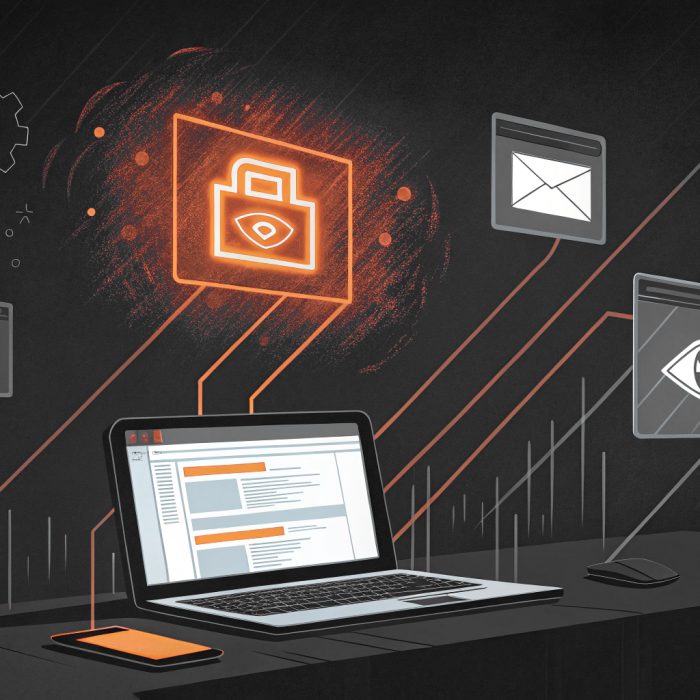The Medical Specialist Group, which provides specialist care services under contract with Guernsey’s government, has been fined £100,000 by Guernsey’s Data Protection Authority following a cyber attack that exposed sensitive patient health information. The case highlights how basic security failures can leave healthcare organizations vulnerable, even when patches and protective measures are readily available.
The breach occurred in August 2021 when cyber criminals exploited vulnerabilities in MSG’s email server to access and steal emails containing patient data. These stolen emails were then used to launch phishing campaigns targeting MSG patients over several months.
A Pattern of Missed Opportunities
The investigation revealed multiple security failures that allowed the breach to occur and persist undetected:
MSG routinely failed to install security updates to its email server over 13 months, including updates directly related to the vulnerabilities that attackers exploited. The organization also had issues with its threat detection software, missing several opportunities to detect unauthorized access.
Perhaps most concerning: attackers had access to the system for three and a half months before MSG detected and reported the breach. During that window, sensitive patient information was stolen and weaponized for ongoing attacks against patients themselves.
Even MSG’s internal investigation had problems. The organization failed to identify the root cause of the server vulnerability and didn’t recognize the failures in how their threat detection software was being applied.
Commissioner Brent Homan stated that medical information requires the highest level of protection against cyber attacks, and MSG’s measures fell well short of legal requirements.

Healthcare Remains a High-Value Target
This incident reflects a broader trend affecting healthcare organizations worldwide. Patient data records are worth 50 times more than payment card data on the black market due to the comprehensive information they contain: Social Security numbers, financial details, medical histories, and personal identifiers.
The statistics are alarming. Since 2019, data breaches from hacking and ransomware affecting healthcare have increased by 89% and 102%, respectively. When healthcare organizations are compromised, the consequences extend far beyond data theft. Attacks have caused blood product shortages, delayed surgeries, and disabled entire hospital networks.
What Healthcare Organizations Can Learn
The MSG breach highlights gaps that many healthcare organizations still struggle with.
Patching can’t wait. Thirteen months without security updates gave attackers an easy entry point. Critical vulnerabilities need to be addressed within days, not months.
Detection systems need to actually work. MSG’s threat detection software missed multiple warning signs over three and a half months. If your monitoring tools aren’t catching unauthorized access, they’re not doing their job.
Administrative access creates risk. When attackers compromise an account with permanent admin rights, they inherit those same privileges. Just-in-time access models limit exposure by granting elevated permissions only when necessary for specific tasks.
MFA stops most attacks before they start. The Advanced Computer Software breach that led to a £3.07 million fine began through an account without multi-factor authentication. Studies show MFA blocks over 99% of automated attacks.

The Real Cost of the Breach
The £100,000 penalty is structured to incentivize remediation: £75,000 is due within 60 days, while the remaining £25,000 will be waived if MSG completes all remedial actions outlined in its security safeguard action plan within 14 months.
But fines represent only a fraction of the total impact. Rebuilding patient trust, managing ongoing phishing attacks against patients, investigation costs, and system remediation all add up. Healthcare breaches often result in months of operational disruption while criminals continue exploiting stolen data.
MSG’s new CEO has committed to positioning the organization as a leader in healthcare data protection. The action plan developed by MSG reportedly exceeds the Data Protection Authority’s expectations, including substantial investments in monitoring systems, staff training, and updated security protocols. Whether other healthcare organizations will learn from this case before facing their own breach remains to be seen.
Healthcare data will always be valuable to attackers, but most successful breaches still exploit basic security gaps. Organizations that prioritize patching, implement proper access controls, and maintain functioning detection systems significantly reduce their risk of becoming the next headline.







